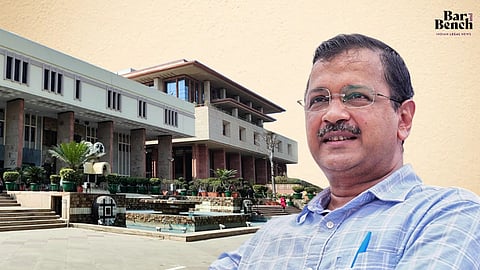
- News
- Columns
- Interviews
- Law Firms
- Apprentice Lawyer
- Legal Jobs
- हिंदी
- ಕನ್ನಡ

Former Delhi Chief Minister Arvind Kejriwal has moved Delhi High Court against maintainability of the criminal complaints filed by Enforcement Directorate (ED) against him for skipping its summons in the Delhi excise policy case.